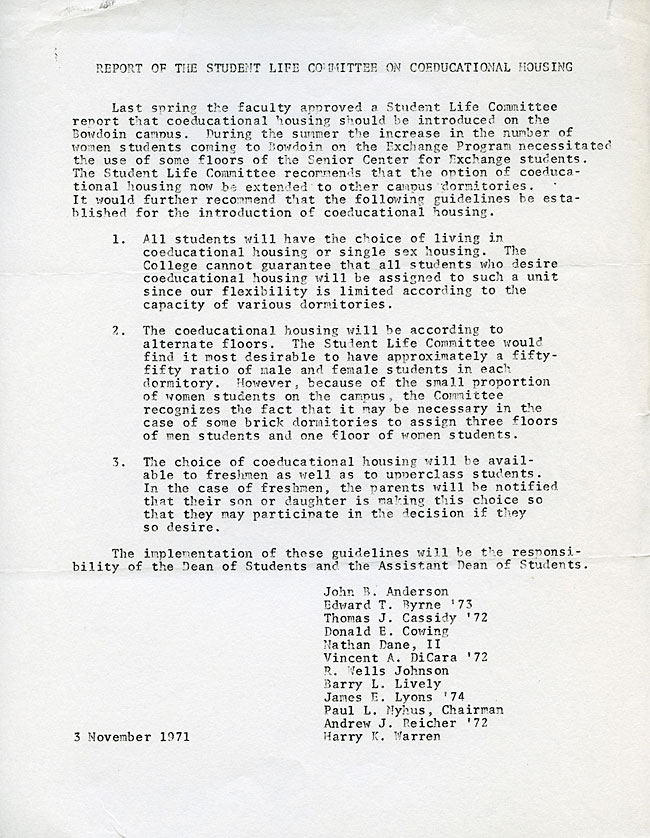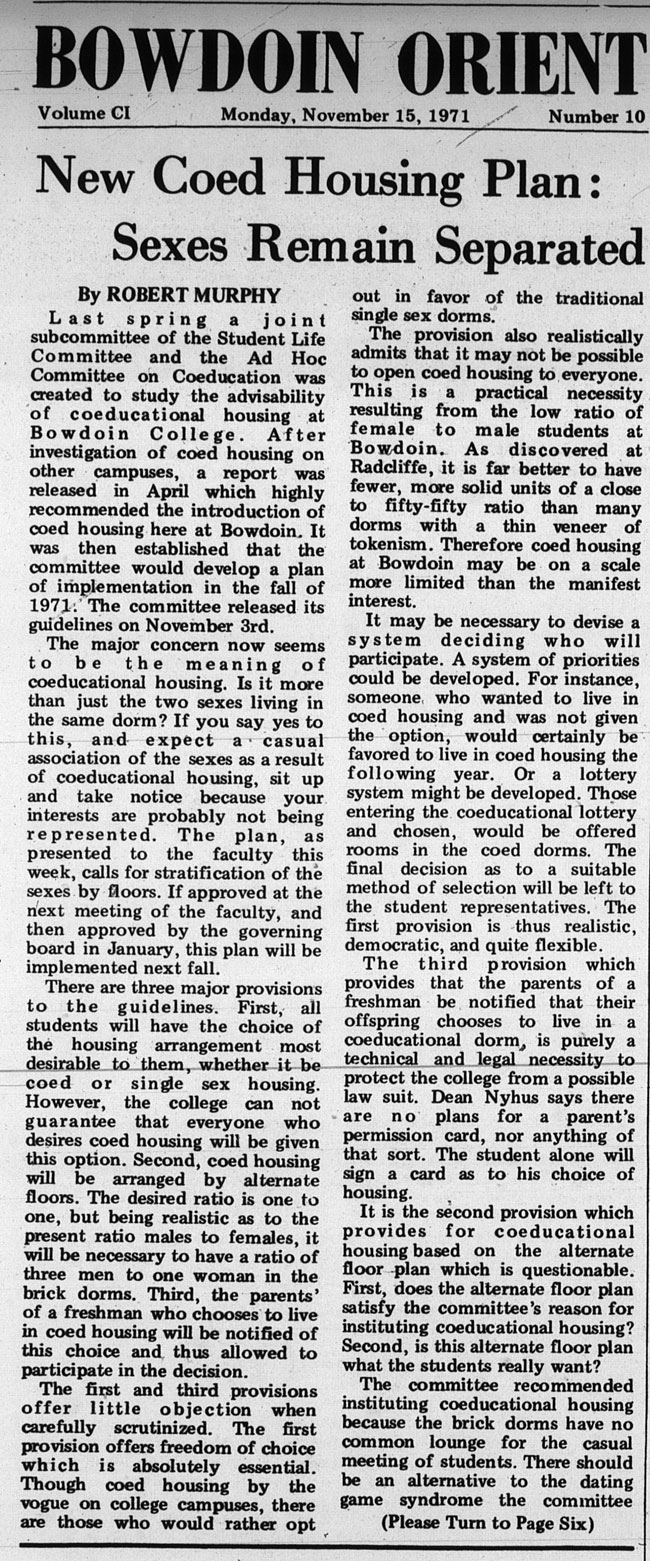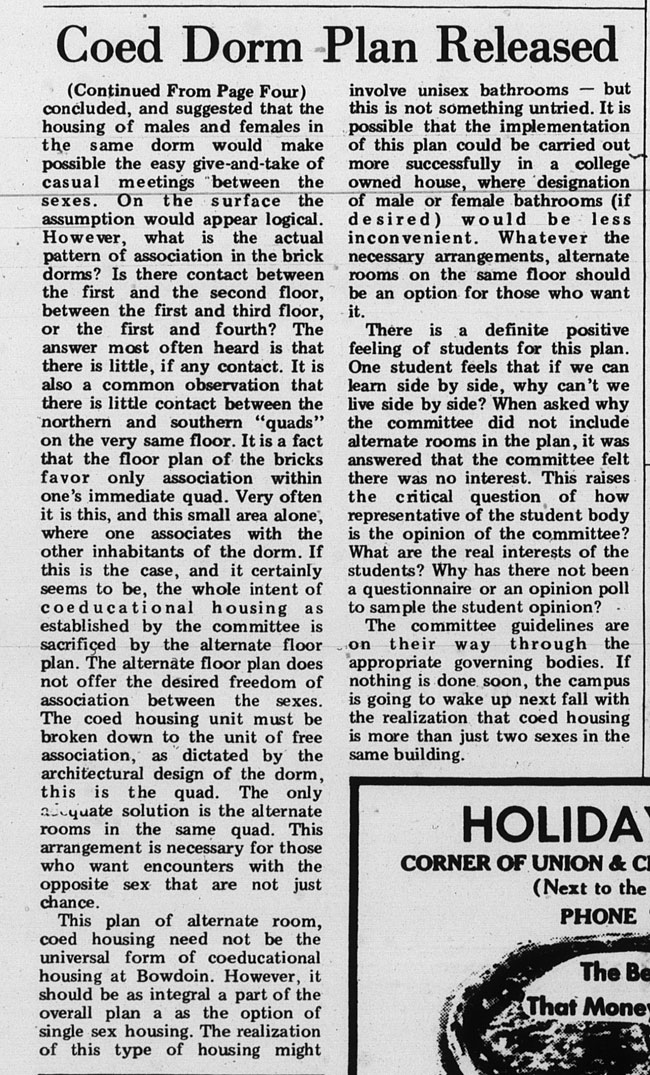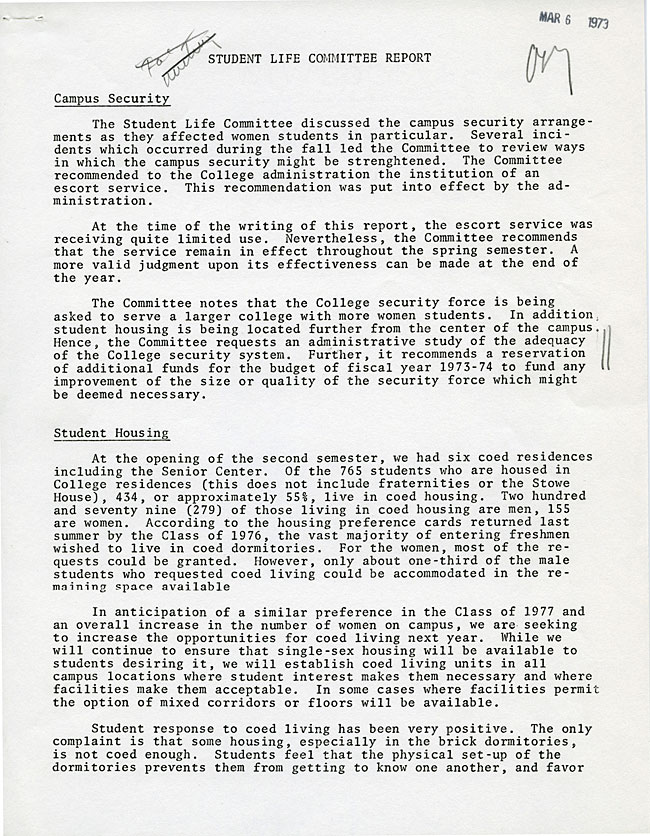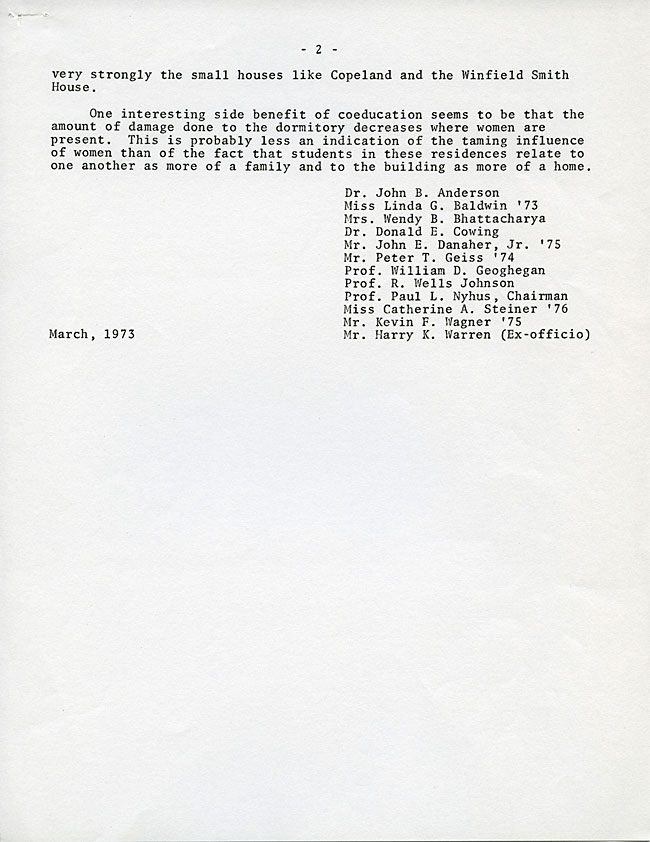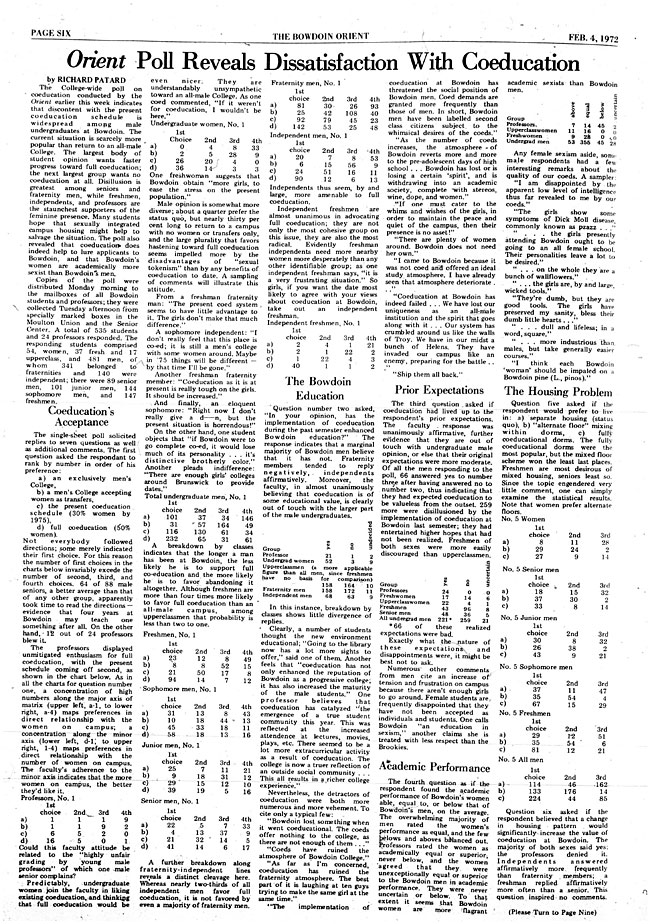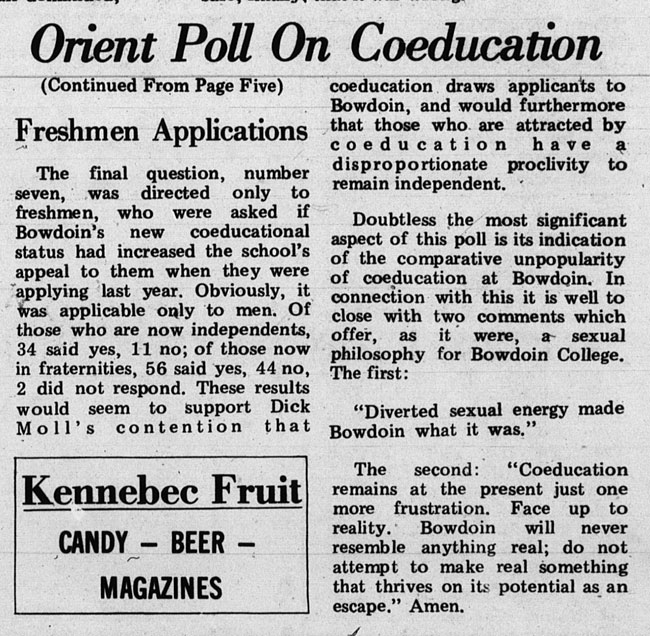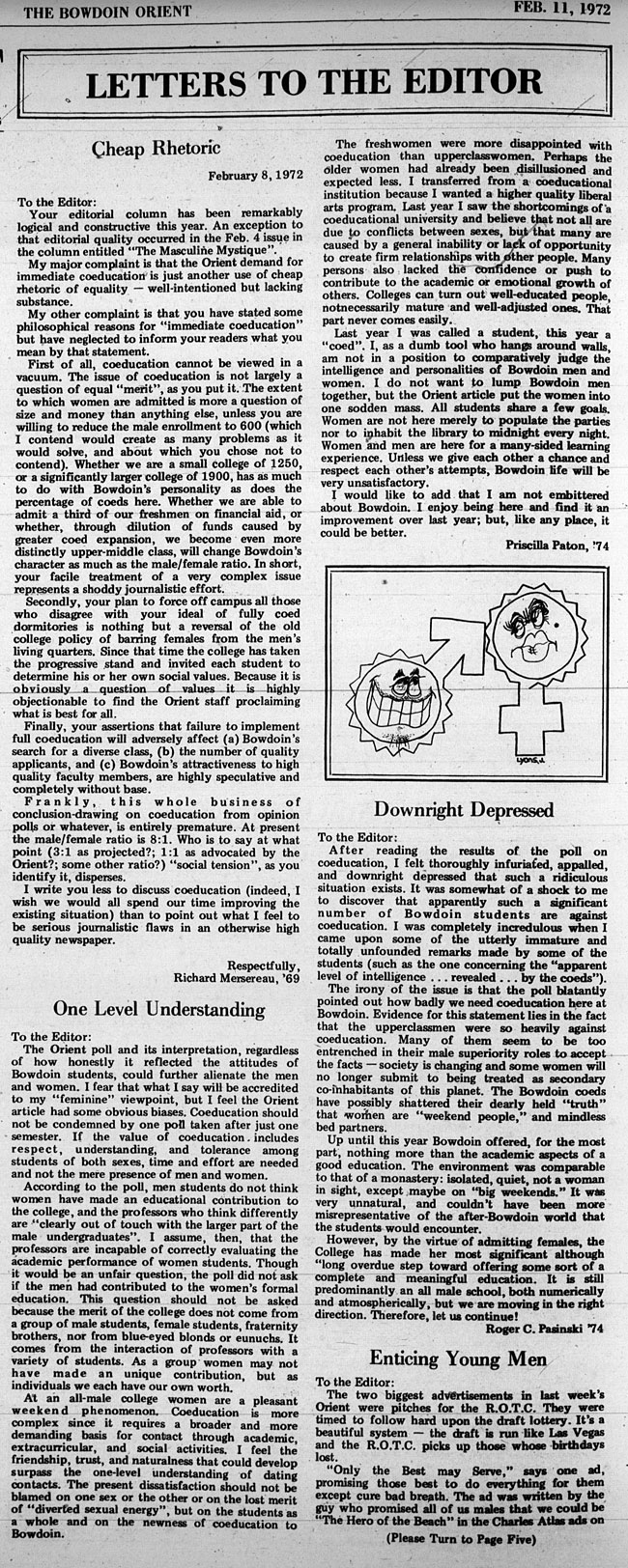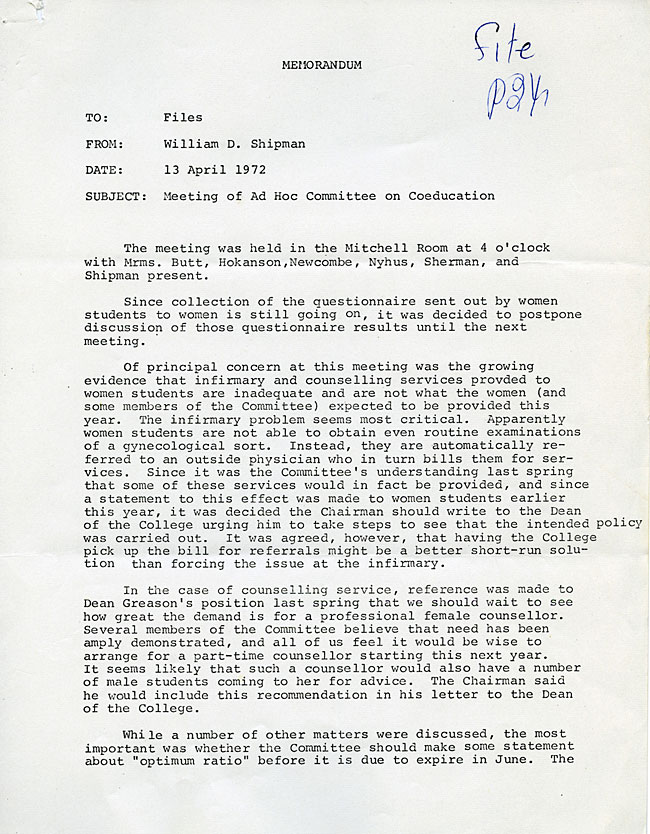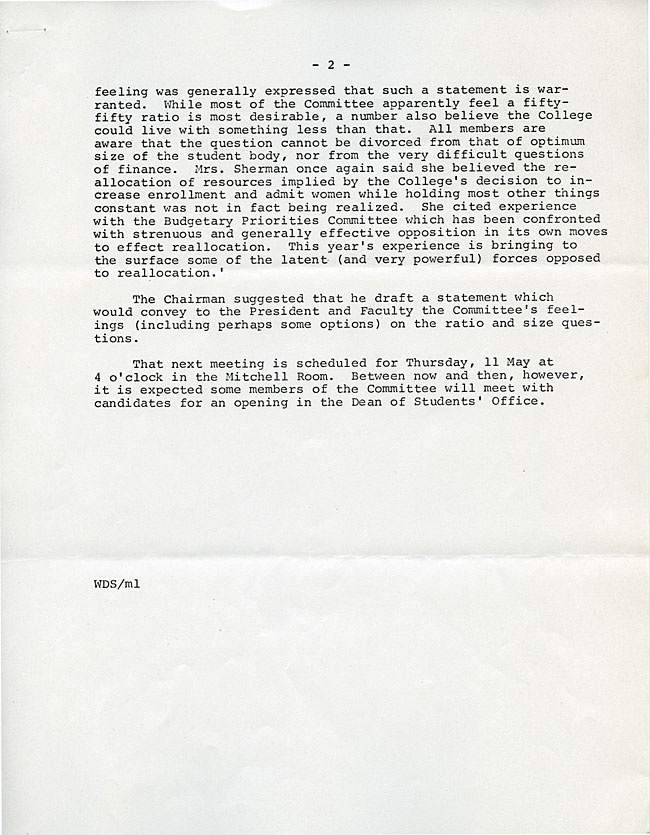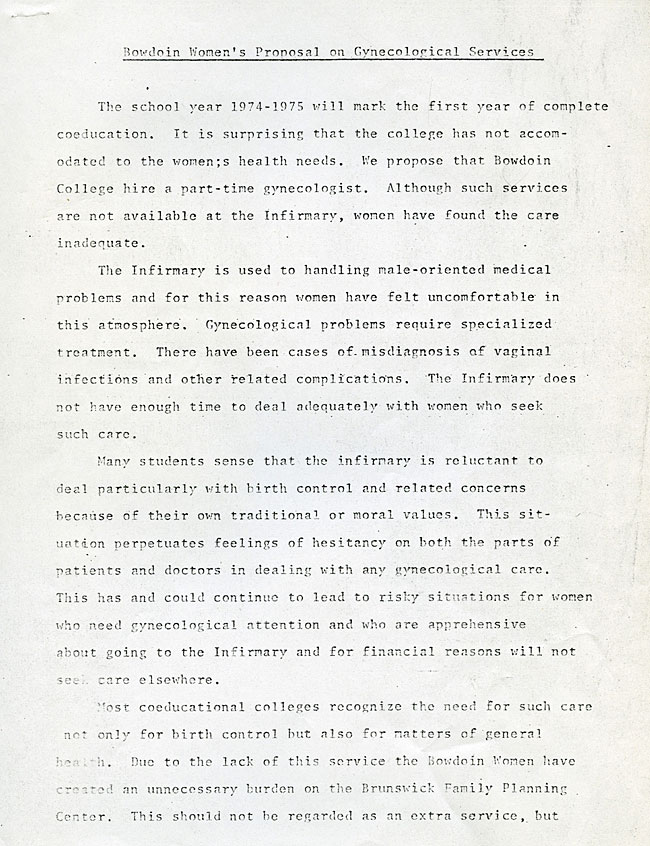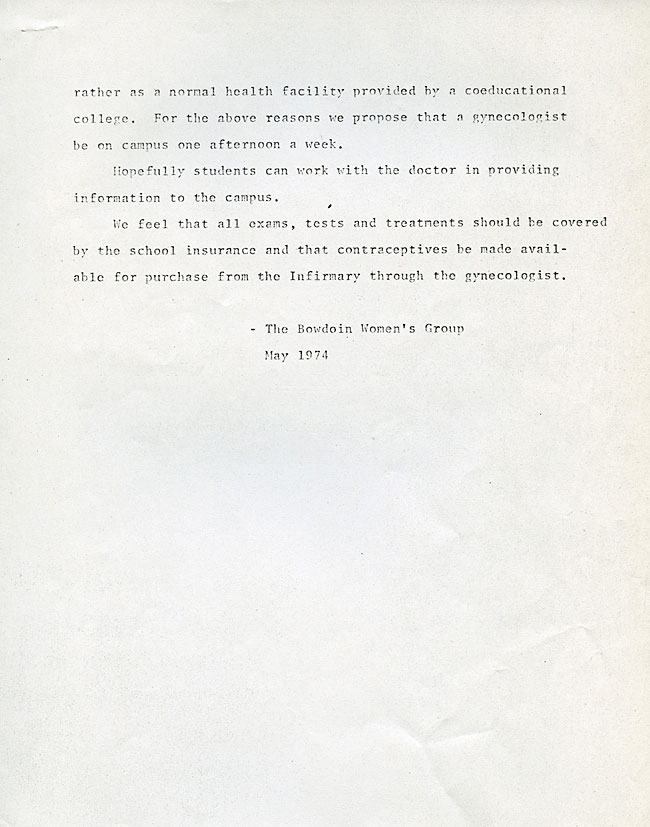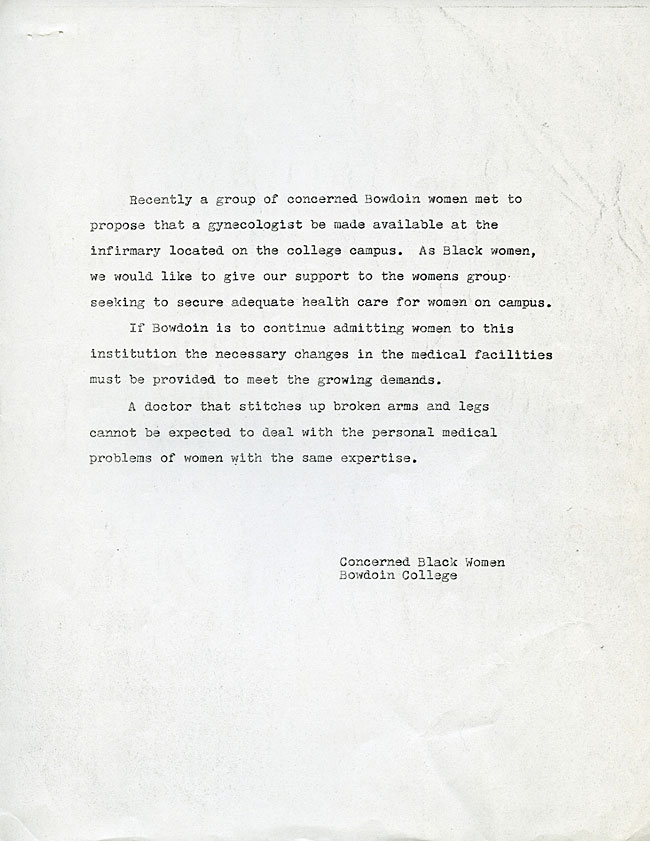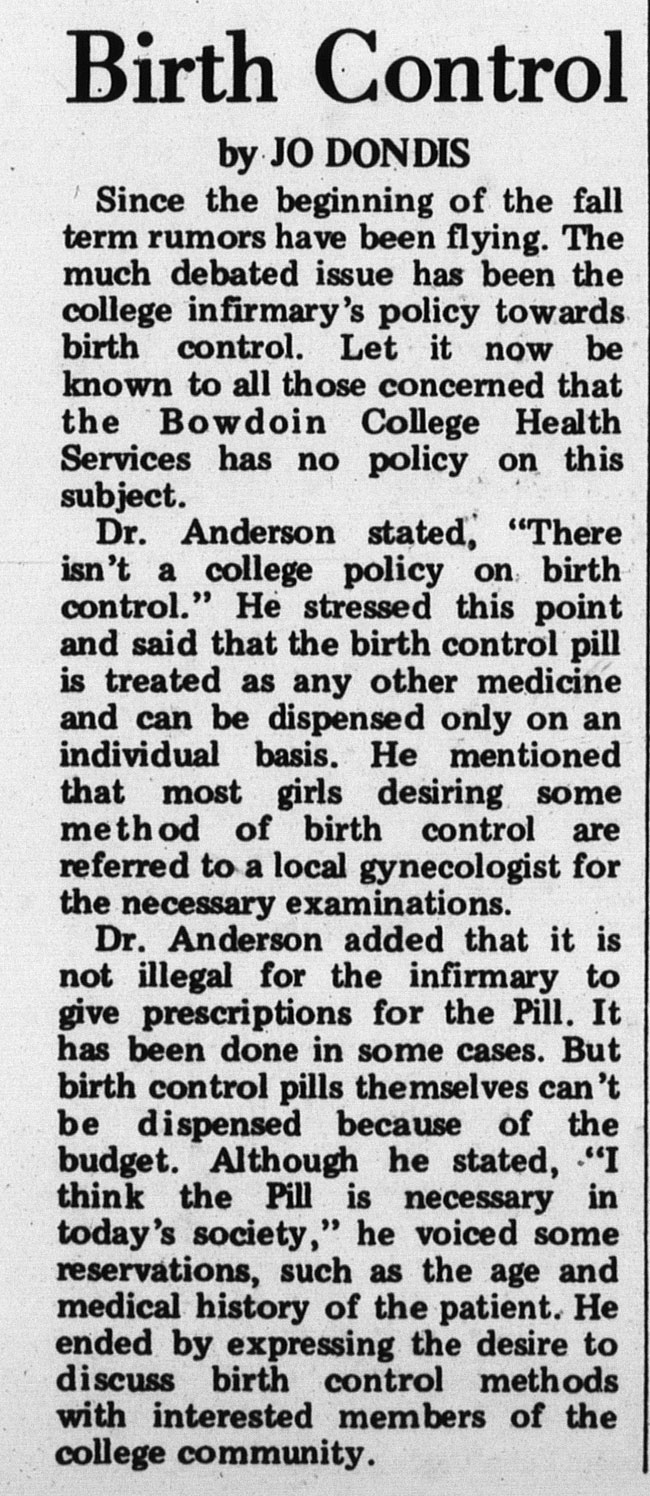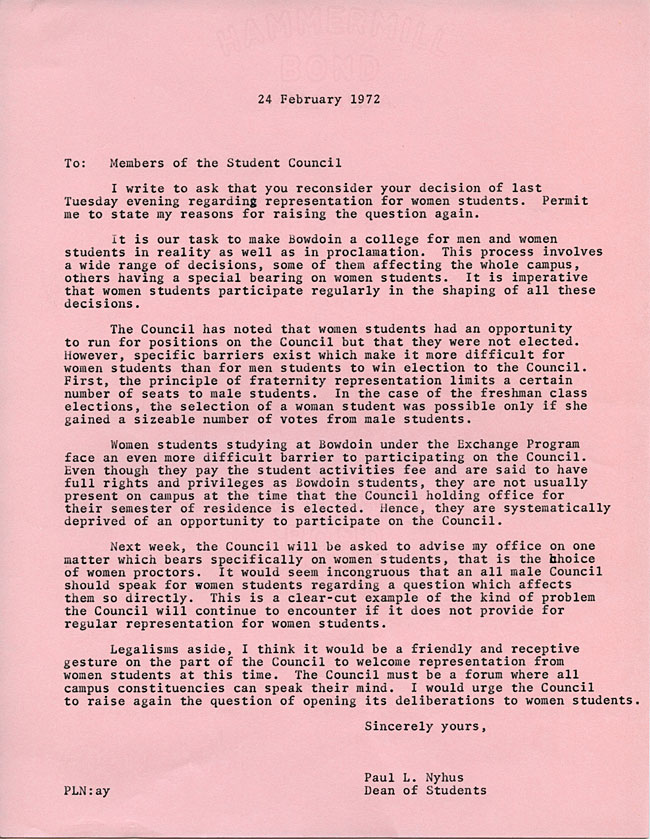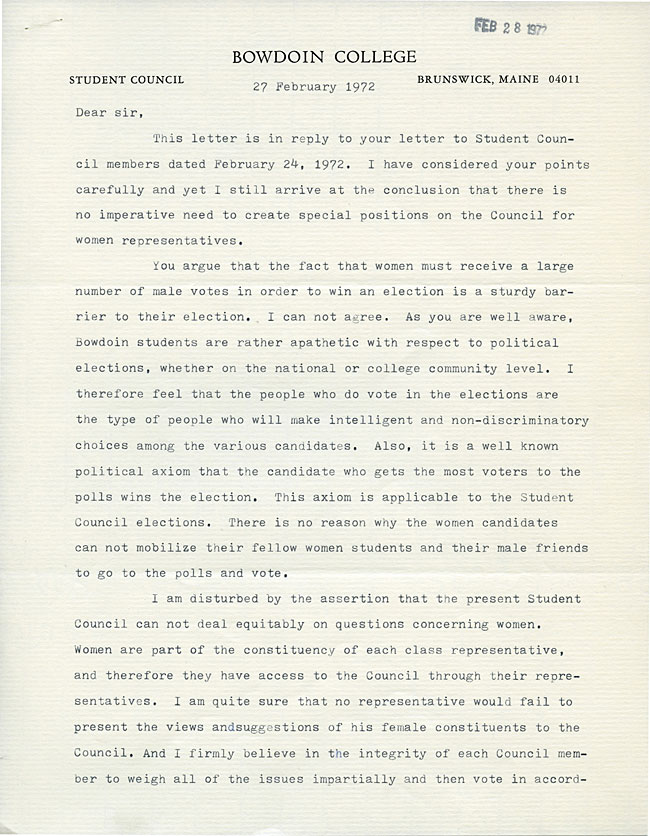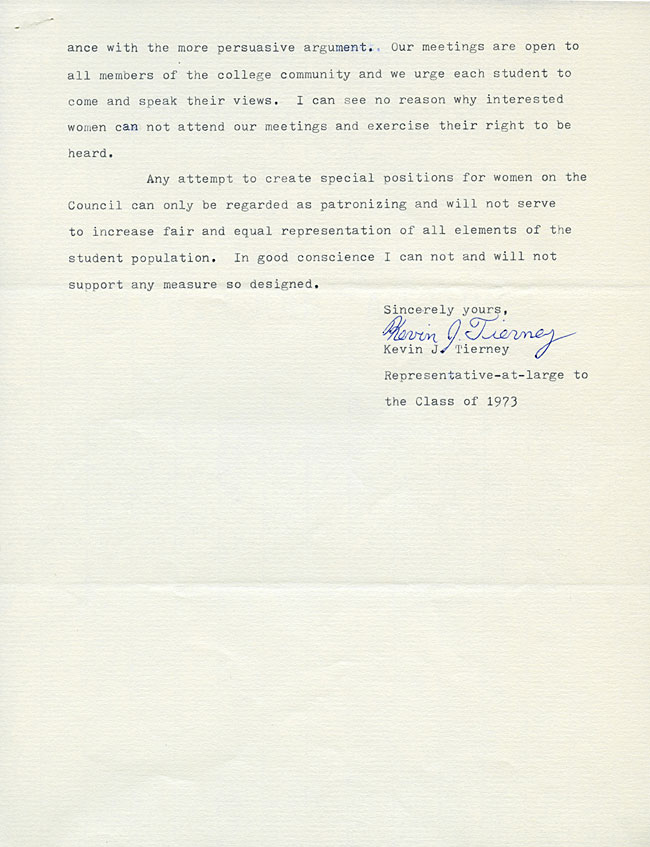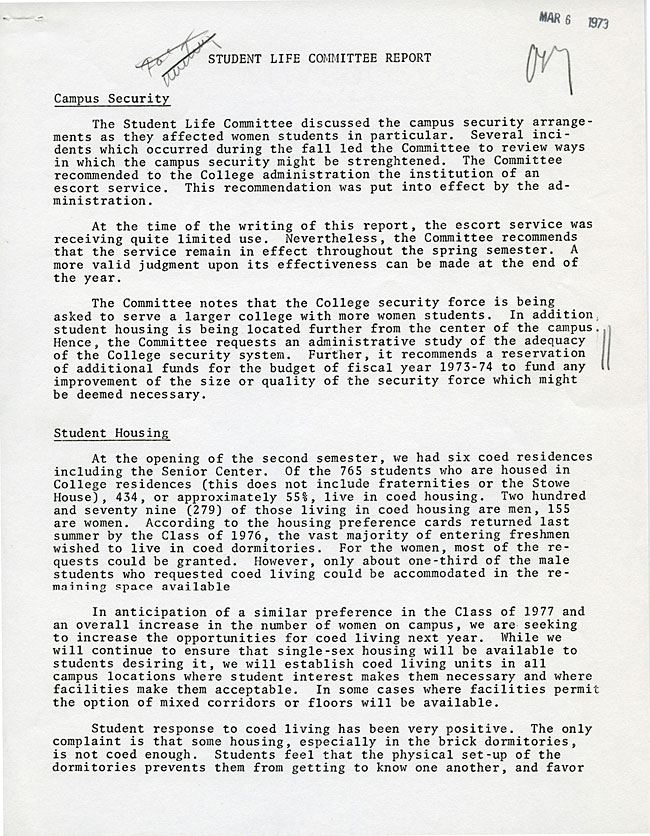Shortly after the arrival of women at Bowdoin, the question of coed housing arose, and this collection of reports and an Orient (Bowdoin’s student newspaper) article documents the process of addressing the issue. In the book Going Coed, Susan L. Poulson notes that sexual segregation “on the eve of coeducation” was extremely prevalent on college campuses, including in housing (227), and Bowdoin was certainly addressing this issue of coeducational housing. The College was only a couple of years behind Harvard, whose housing became coed in 1970, and Rutgers and Georgetown, which had introduced coed housing even earlier, in the 1960s.
As demonstrated by the Student Life Committee’s Report from November 3, 1971 (Document EN, 24.1), Bowdoin was grappling with the concept of coeducational housing within just months of the arrival of matriculating women students at the college. The committee suggests three guidelines: all students can choose between coed and single sex housing, but the College does not guarantee that those students requesting coed housing will be assigned to it; dormitories will be coed by alternating floors, but due to the ratio of men to women at the college, there will likely be three floors of men to each floor of women; first-year students can request coeducational housing, but their parents will be notified.
The student newspaper was quick to pick up on this report and also quick to criticize the second guideline regarding coeducational housing by alternate floors in an article entitled “New Coed Housing Plan: Sexes Remain Separated” from November 15, 1971 (Document EN, 24.2). Despite these criticisms, nearly a year and a half later, in March of 1973, the “Student Housing” section of another Student Life Committee Report (Document EN, 24.3) notes that coed housing had been successfully implemented, that the “vast majority” of the class of 1976 had requested it, and that there was less damage in coed dormitories. The Pierce Report of 1969, which had recommended coeducation for Bowdoin, declares that “women would undoubtedly have a ‘civilizing’ effect” at Bowdoin (31-32), but this 1974 report speculates that the decreased damage is the result, not of women having a “taming influence” on men, but of students in coed housing seeing each other “as more of a family” and the building “as more of a home.”
